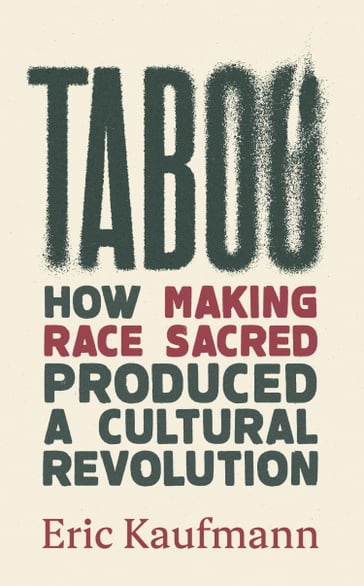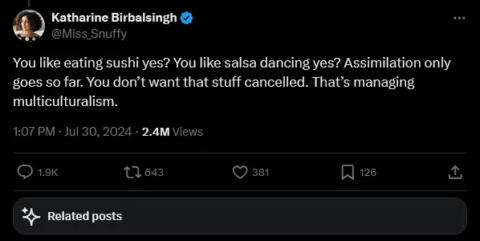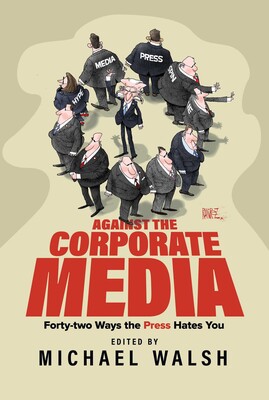In 1963, JFK signed the Community Mental Health Act. Its order to close the state psychiatric hospitals was followed, and hundreds were shuttered; the community mental health centers that were meant to replace them were never built. With far fewer beds for a growing patient population it should not have surprised anyone that the streets gradually filled with the severely ill. But somehow, we were surprised. The state governments were mostly just grateful to save money that had once gone to mental healthcare. The passage of Medicaid two years later deepened the problem. Medicaid’s funding structure presented states with an opportunity to further offload costs, this time onto the federal government. Unfortunately, the private institutions that filled with Medicaid patients were no better than the state facilities that had been closed; often they were worse. And maintaining access to Medicaid funding for such care, in practice, was more complicated and less certain than staying in a state institution. In 1975, the Supreme Court’s O’Connor v. Donaldson decision established a national standard that the mentally ill could only be involuntarily treated if they represented an immediate threat to themselves or others. This completely removed actual medical necessity from the equation, and the standard directly incentivized hospitals to discharge very ill patients, many of whom leave these useless emergency room visits and immediately abuse drugs, self-harm, commit crimes, attack others, or commit suicide. In 1990 the passage of the Americans with Disabilities Act further empowered treatment-resistant patients and created legal incentives that led hospitals to release severely ill people rather than face the burden of litigation. Various state reforms in recent decades have almost uniformly pushed the severely ill out of treatment rather than into it, under the banner of “autonomy”. For sixty years we’ve done everything in our power to make it harder to treat people who badly need care. And here we are.
Freddie deBoer, “We Closed the Institutions That Housed the Severely Mentally Ill and We Made It Dramatically Harder to Compel Them to Receive Care”, Freddie deBoer, 2024-05-14.
August 15, 2024
QotD: The bitter fruit of deinstitutionalization
August 13, 2024
Feelings … nothing more than (climate) feelings …
Have you been metaphorically beaten over the head about your climate sins? Your carbon buttprint? You know your very existence is a threat to Mother Gaia, right? Well, Katharina van Bronswijk is worried that you’ll stop listening to the neverending lectures about you and your evil externalities:
Climatism is a political programme bound to a broad social movement. Most of its momentum comes not from The Science or The Experts, but from diffuse cultural forces that we should probably try to understand, if only because they are driving our entire civilisation straight into the ground. Against all advice, I will therefore steer the plague chronicle into this ridiculous quagmire of leftoid green babble, with a look at our first lesson in Unlearnings, namely “Unlearn Repression”.
This superficial and disorganised essay is the work of an infuriating young woman named Katharina van Bronswijk. She’s a psychotherapist best known for her 2022 book, Climate in Our Heads. Fear, Anger, Hope: What the Ecological Crisis is Doing to Us. It belongs to that genre of inevitably unreadable monographs, in which the author herself appears on the cover, looking windswept, pioneering and undaunted:
“Climate feelings” are van Bronswijk’s niche in the extremely crowded enterprise of CO2-bothering. In “Unlearn Repression”, she argues that we should not suppress our negative feelings about climate change, but rather embrace them in constructive ways on behalf of the planet.
Now, van Bronswijk is the kind of deeply unoriginal person who just says the same things over and over. Everything she writes in “Unlearn Repression” flows directly from Climate in our Heads; she’s been digesting, reheating and reworking this same overboiled intellectual artichoke for almost two years now, through various media interviews and even in this English-language TEDx Talk. Throughout this woman’s work is the vague anxiety that the climatists have perhaps overdone it with doom and gloom, and that a lot of people have had enough of hearing about a climate apocalypse that never quite happens.
Van Bronswijk is naturally very dumb, but more than that she is painfully condescending, oblivious, verbose and just awash in litres of estrogen. I defy anyone to read her work and not come away from it a raging misogynist. This odious overpromoted schoolmarm belongs out of sight in a childcare centre teaching young children the alphabet. Perhaps she should also be in a choir, or part of a local environmental club dedicated to collecting litter in parks. That our society has denied van Bronswijk and so many others like her these proper outlets for their instincts and instead pushed them into public activism and intellectual production itself explains a great deal of what is wrong with the world.
“Unlearn Repression” opens with some autobiographical details, because of course everything van Bronswijk talks about is all about van Bronswijk. Like so many Germans of her generation, she was radicalised by school climate propaganda – specifically, by her teacher’s fateful screening of that classic propaganda film, An Inconvenient Truth:
Back then … I was happy for the welcome distraction of watching a film instead of doing normal lessons. But afterwards I was shocked and asked my mum for answers to all the questions and challenges. She didn’t have any solutions for me, how could she? I was alarmed and started to think about the impending consequences of climate change and what could be done about it. I found approaches in newsletters from NGOs and by reading up on animal and environmental protection … That was when my dream bubble burst and I realised: the world is unfair and, unlike all the Disney stories of my childhood, there will be no single hero*ine who saves the world. And there is no magical or technical miracle solution either.
Al Gore’s film so terrified the young van Bronswijk, that for a while she retreated into conspiratorial theories about why climate change is not happening, which qualifies our crayon psychotherapist to pronounce upon the psychology of those who deny the climate. This deeply evil and irrational movement is driven primarily by “white men”, because they “still enjoy most of the privileges in our society, and therefore have the most to lose”.
Taboo by Eric Kaufmann
In Quillette, John Lloyd reviews Eric Kaufmann’s Taboo:How Making Race Sacred Produced a Cultural Revolution:
Earlier this year, Eric Kaufmann, a Canadian professor of political science, left Birkbeck College in the University of London where he had taught for twenty years. He was also head of the political science department there, and already had a number of deeply researched books behind him. But neither long service, departmental prominence, nor publishing success offered much of a defence against three separate attempts to cancel him. Indeed, his 2018 book Whiteshift told against him, since it argued, inter alia, that white majorities should have as much right to protect their identity and culture as minorities, a position now perceived by some as evidence of racism. “Repressing white identity as racist”, he wrote, “and demonising the white past, adds insult to the injury of this group’s demographic decline. This way lies growing populist discontent, or even terrorism.”
During the first part of his career, Kaufmann mostly kept his conservative views to himself, and with good reason. When he revealed them in Whiteshift, he became a marked man and spent several years fending off persistent efforts to strip him of his job and livelihood. His academic colleagues were generally unsupportive, and some of them participated in the campaign against him. So, he left Birkbeck for the University of Buckingham, the first of a small clutch of private universities created since the 1970s with the enthusiastic backing of Prime Minister Margaret Thatcher. Buckingham takes pride in rejecting leftist monoculture in favour of an approach that privileges open debate without the risk of career obliteration.
These days, Kaufmann is — as the Scots saying goes — a “bonnie hater” (or what others might call a “happy warrior”). With his new book, he joins the best of those (disproportionately American) writers, journalists, and politicians alarmed by the activities of ideologically motivated individuals and organisations operating under the vague umbrella term “wokeism”. This inchoate movement, Kaufmann maintains, is deeply destructive of freedom (and of freedom of speech in particular), learning, virtue, public morality, patriotism, and emotional continence. It is, Kaufman recently told the Daily Mail, an “Orwellian threat to the [E]nlightenment — free speech, equal treatment, due process, objective scientific truth. I believe this new woke ideology threatens the foundations of our civilisation.”
Wearying of the years of harassment he received for his views (none of which, he stresses, was ever physical), Kaufmann moved to Buckingham. He wanted to take advantage of the opportunity to establish a Centre for Heterodox Sociology where progressive doctrines could be studied, dissected, and debated, a pursuit he believes would be impossible anywhere else. Buckingham received first prize for free speech in last year’s National Student Survey. It will now be required to live up to that distinction, since Kaufman’s approach — after many years spent avoiding conflict — has become direct and uncompromising. Any determined left-leaning student or scholar would find this an intolerable provocation — a display of prejudice and bigotry meriting expulsion from the scholarly body lest it spread to innocent souls insufficiently prepared to counter it.
The list of progressive doctrines Kaufmann has compiled to define “wokeism” is probably the most comprehensive assembled to date. Much of what concerns him most relates to education. He believes that higher education, in particular, has become a place of inflexible dogmas on race, gender, emotional fragility, and anti-white bias rather than a home of serious study, reflection, and discussion. But he does not believe—as many other critics of contemporary progressivism do—that this is a kind of warmed-over Marxism, in which the fragile student has taken the place of the exploited proletarian. Instead, progressivism’s concern for the outnumbered, the vulnerable, and the frail can be traced back to Christ’s teachings, and especially to his Sermon on the Mount reported in Matthew 5:5: “Blessed are the meek, for they shall inherit the earth.” This injunction is now marshalled into a secular hallowing of blacks (above all), Muslims, women, and LGBT individuals.
Kaufmann calls the upshot of this genealogy “cultural socialism” — a movement that privileges equality, but equality of outcome not merely opportunity. He points to a speech that US president Lyndon Johnson delivered to students at the historically black Howard University in 1965, in which Johnson claimed that “we seek not just equality as a right and a theory, but equality as a fact and equality as a result”. Suddenly, Kaufmann remarks, “the door was open to restricting liberty and equal treatment in the name of achieving ‘equality of result’.” Such a regime, he points out, will inevitably disincentivise effort and excellence. Why forgo pleasure to work hard when the dedicated and indolent alike will all be made equal in the end? It’s worth remarking, however, that socialism does not necessarily provide the low road to unequal equality. Kaufmann quotes the historian Eric Hobsbawm — an unapologetic communist until he died in 2012 — who insisted that privileging one group over another will destroy society by breaking it into mutually hostile communities.
August 12, 2024
Lions, foxes and wolves
N.S. Lyons tries to explain how Britain has gotten into its current social and political plight by recalling the works of Niccolò Machiavelli:
The riots that have recently wracked the streets of the UK reflect decades of pent up public frustration with the country’s governing elite, especially their total refusal to control mass immigration despite vote after vote demanding they do exactly that. The pot has now boiled over. But the ongoing back-and-forth of ethnic violence also represents a signal that the British elite’s whole broader strategy of governing – one based in the fundamental personality of the ruling class itself – may be beginning to break down. And that carries some significant implications.
To understand why, however, we need to take a brief detour back about five centuries to Niccolò Machiavelli. He identified two archetypical psychological profiles of people who become leaders: the cunning but weak fox, who can outmaneuver his opponents but is “defenseless against wolves”; and the strong and brave lion, who likes to fight and who can scare off wolves but who is “defenseless against traps”. Machiavelli argued that a true statesman must embody both personalities, or risk destruction.
A distant student of Machiavelli, fellow Italian political theorist Vilfredo Pareto, would later expand the metaphor further. Observing history, he noted that the rise and fall of states and civilizations could be matched to a cyclical pattern in the collective personality of their ruling classes.
Nations are founded by lions, who are a society’s natural warrior class – its jocks, so to speak. They establish and expand a kingdom’s borders at the point of a sword, pacifying external enemies. Like Sparta’s Lycurgus or Rome’s Augustus, their firm hand often also puts an end to internal strife and establishes (or re-establishes) the rule of law. Their authority can be dictatorial, but it is relatively honest and straightforward in nature. They value directness and the clarity of combat. They are comfortable with the use of raw force, and open about their willingness to use it, whether against criminals or their own enemies. They have a firm sense of the distinction between enemies and friends in general – of who is part of the family and who is a prowling wolf to be guarded against. The security and stability they establish is what allows the nation to grow into prosperity.
Security and prosperity produce a proliferation of foxes. Foxes are unsuited to and deeply uncomfortable with the employment of force; they prefer intellectual and rhetorical combat, because they’re nerds. They seek to overcome obstacles through clever persuasion or the manipulation of people, information, narratives, and formal processes. If they have to use physical force they will, but prefer to disguise its nature and are prone to use it ineptly. The brainy and cosmopolitan foxes have talents the lions don’t, however: they are good at managing complexity and scale, navigating the nuances of diplomatic alliances, or extracting profits from an extensive empire.
As long as peace prevails, civilizations come increasingly to morally prize the indirect and diplomatic methods of foxes and to avoid and indeed abhor the strength and violence of lions. And as states grow larger and more complex, establishing new layers of bureaucracy, law, and procedure, this quickly favors the byzantine organizing and scheming of foxes. In comparison lions are inarticulate and unprepared for the traps of more underhanded mammals. So eventually a wholesale replacement of the elite occurs: the lions who founded the nation are pushed out of its leadership, marginalized and excluded by a class of foxes who see them as brutish relics of a barbaric age.
But a curious thing then happens, Pareto observed: the instability of societies overly dominated by foxes begins to increase relentlessly. The foxes, reluctant to properly distinguish and identify real threats, or to openly employ force even when necessary, find themselves defenseless against wolves both internal and external. When faced with escalating challenges, the foxes tend to resort to doubling down on their preferred strategy of misdirection, manipulation, and attempting to bury or buy off threats rather than confront them directly. This does nothing to solve problems that require the firm use of force, or the threat of it, such as keeping packs of wolves on the other side of the borders. Eventually, when things get bad enough, foxes may desperately lash out with violence, but do so indecisively, ham-fistedly, or in entirely the wrong direction. The wolves, for their part, can instinctively smell weakness and just keep coming.
Like the rest of the West, Britain has been ruled for decades now by an effete managerial elite whose system of technocratic control is absolutely characteristic of foxes. There could be no better example of this than how the government has attempted to manage immigration and the ethnic tensions it has brought to unhappily multi-cultural Britain. It has sought to control public perception of the problem, and indeed has strived mightily to pretend the entire problem simply doesn’t exist.
It has done so, in classic foxlike fashion, through careful control of media and online information, engaging in an effort to downplay inconvenient facts, obscure the identity of terrorists and violent criminals, memory-hole potentially divisive events, and censor counter-narratives. Those who have continued to speak out on the issue are smeared with reputation-destroying labels like “racist”, “xenophobic”, or “far right” in order to deflect others from listening to them. This reflects foxes’ consistent instinct to turn first and foremost to information warfare and narrative manipulation over direct confrontation. Hence the ruling elite’s immediate reaction to the latest riots: blaming them on “misinformation” and “unregulated social media” – the implication being that nothing at all would be amiss if the information common people had access to could just be better suppressed.
August 10, 2024
August 9, 2024
Domicidal maniacs in charge
Lorenzo Warby provides an oh-so-useful word to accurately capture what the diversity-at-all-costs elites running most western countries these days are actually up to:
Domicide is the destruction of home. It comes in the “hard” version — the physical destruction of houses and infrastructure.
Domicide also comes in a “soft” version — flooding localities with new people, separating people from, and otherwise degrading, their heritage. When folk say Britain is becoming “unrecognisable”, it is the domicidal effect of mass migration they are referring to.
The UK is suffering from a domicidal elite, one that uses mass migration to break up working-class communities; asymmetric multiculturalism to elevate incoming cultures over those of native English (the Celtic fringe get minority brownie points); favours non-“white” faces in advertising; asymmetric race-swapping in entertainment against the native English; denigration of British history as racist, white supremacist, imperialist, colonialist, etc.
Much of this is insulting virtue-signalling allied to, or presenting, cartoonish (simplified) and caricature (distorted) history. It all undermines social cohesion. But it is the use of migration policy as a systematic weapon against the resident working class which does the most damage. Though two-tier policing — obviously treating Muslims in particular with a deference not shown to the natives, especially when it comes to policing speech — is also highly corrosive of social cohesion.
Many working-class communities in Britain were already fairly dysfunctional — though the British state is not innocent in those dysfunctions1 — and sections of the British working class are very far from admirable. None of this justifies the use of mass migration to make things worse for such folk, however much it may help to explain the moralised class contempt that underlies so much of modern progressivism and modern managerialism.
To improve such things, to “level up”, requires a strong sense of how to create and maintain social order. Modern progressivism is strongly antipathetic to such understanding. To “level up” also requires a strong sense of custodianship, which managerialism typically lacks: particularly progressivist managerialism.
Indeed, modern feminist, progressivist, managerialism—in its lack of custodianship; lack of social solidarity;2 in its antipathy to taking the problems of social order seriously — is running the British state into the ground. The post-medieval British aristocratic and mercantile elite did a much better job of state management. But those elites had mechanisms — such as duelling, that forced men to defend their reputation at the risk of their life, and grand country houses, that turned into expensive investments in social isolation if you behaved badly — that selected for character.
Nowadays, the British elite only selects for capacity and even that is being degraded by DEI undermining the signals of competence. It turns out, over the longer term, character matters more than capacity. For capacity without character selects for manipulative, anti-social personalities that degrade institutions over time.
1. For a particularly brutal depiction in fiction of the dysfunctional British welfare state — especially its school system — see Christopher Nuttall’s Mystic Albion series, especially the first book.
2. Feminisation of institutions and discourse has tended to degrade social solidarity, see Benenson et al, 2009. The most conspicuous example of this in the UK is how uncouth it is in elite circles to mention the systematic rape and sexual exploitation of underage working class girls by overwhelmingly Muslim gangs.
August 3, 2024
“Multiculturalism is when yummy food”
Fortissax pours scorn on the defenders of multiculturalism-at-all-costs for one of the most common arguments in favour:
“Multiculturalism is when yummy food” is a real position people take. If you ask them what benefits of multiculturalism are, they’re going to say food and nothing else. Westerners don’t watch Bollywood films, they don’t listen to Desi music, they don’t watch cartoonishly bad Latin American dramas, usually for Hispanic abuelas still living in Mexico where every actor is suspiciously fairer-featured than everyone in their whole family. People can’t say “I love the food, the music, the culture” because they don’t engage in any of this. Salsa isn’t even popular; it hit its peak at the end of the 1990s because white boomer Americans approached an intensely Anglicised, sanitised form of Latin-American culture as introduced to them through the likes of Enrique Iglesias and other English-speaking Latin pop artists.
I don’t believe all leftists say this out of sincerity. It’s a knee-jerk reaction to any criticism of multiculturalism. They don’t put a lot of thought into it. The justification is usually related to how “bad” that “white people food” is. This follows the same thread of accusations that “white people can’t dance”, “white people can’t jump”, “white people can’t fight”, and “white people can’t fuck”. It’s another lib-coded tract to bash English-speaking white Americans over the head with, to justify demographic displacement by portraying them as boring, ugly, weird, or uncool. On some level, they probably know food isn’t worth human lives, but they have to reinforce their moral view or the whole thing collapses, and they have to admit fault for doing things and promoting ideas that are so destructive that people would want to unalive them. If they give up now, it’s over. It’s sunk cost fallacy.
For the rest who’re wholly sincere: it’s just straight up bullshit. Foreign restaurants serve you a Westernized version of their slop. Their bulk food suppliers are Western, the ingredients are Western-derived, but they sell it as “authentic” when it isn’t. That crab rangoon you just spent $40 on Doordash was bulk bought at Costco during a last ditch grocery run. They’re selling you the experience. A sampling of the real thing, deliberately fitted to your people’s general dietary preferences. All of these “ethnic”, “exotic” restaurants do this. Everyone knows about “secret menus” at Chinese or Indian restaurants. Anybody who works in culinary, hell, anybody whose watched the UK version of Hell’s Kitchen where Gordan Ramsay tries to rescue failing restaurants owned by small business owners can tell you most of these people aren’t using fresh or original ingredients. You go to any “Japanese” restaurant in North America, the staff are a random assortment of Asian, or sometimes Korean or Chinese, or maybe even Filipino but it doesn’t matter because they look Asian enough to boomers, correctly guessing people can’t tell the difference at a passing glance.
July 31, 2024
July 30, 2024
The new and improved malaise for the 21st century
Back in the 1970s, US President Jimmy Carter identified the theme of the decade as “malaise”, and now, thanks to generations of feckless politicians, burgeoning bureaucratic empires, and economic stagnation, it’s back in an even malaisier form for the Current Year:

“Kamala Harris” by Gage Skidmore is licensed under CC BY-SA 2.0 .
Some time ago, I noticed that a general fatigue had taken a place alongside the malaise that was already being felt by many Americans and Canadians. The malaise stemmed from the overdue recognition that their lives were not going to get any better, and that they would have to work harder to just maintain a standard of living that they were already used to.
The fatigue came from a different, but not too distant place; the politicization of everything these past one and a half decades meant that there was no escape [from] the political. Whether sports, video gaming, or even fashion, everything had to be run by the cultural police before it could be deemed “not problematic”. The problem was (and still is) that everything to this type is “problematic”. This would not be a problem at all if this type were not empowered by the powers-that-be, but for some strange reason the cultural police quickly became ubiquitous, and their constant hectoring and lecturing ground most people down to the point where fatigue set in.
Everything became political, so therefore there was nothing that was not political. The fact that sanctions began to be placed against those who dared to buck the new trends in social mores meant that this was a totalizing form of politics. It wasn’t fascism, nor was it communism … but it was (and is) totalitarianism in a new form all its own. The rise of populism on the right in the West (as this trend is also present in Europe, but is not as thoroughly embedded there as it is in North America) is almost entirely a reaction to this. Freedom and liberty, as traditionally understood in the Anglosphere (i.e. “as long as I don’t harm others, I can do or say what I want”) took a back seat to what they call “equality”, a first step towards the more extreme demand known as “equity”.
Economic precariousness combined with the permanent presence of the Sword of Damocles above your head is a brilliant way to get people to shut up and get with the program. It is very coercive, but it is for the “greater good”, they tell us. What we already see is that it does not convince all, and that it has a negative effect on trust in governing institutions and national elites. The level of control by the managerial elite over the daily lives of its citizens is now at a micro-management one. Everyday, most people have to think carefully before speaking for fear of committing some aggression that could lead to the termination of their employment. They must mouth elite-approved social mores just in order to be able to tread water, as boat rocking is a secular sin. Why would the powers-that-be want to ever give up such a tool of mass control? The people are not to be trusted, which is why this totalizing system must remain in place. Just imagine if it were removed: the dreaded 1990s would return … or something.
Jacob Siegel has written an interesting essay on the concept known as “Whole of Society”, and how it has become a totalizing system:
To make sense of today’s form of American politics, it is necessary to understand a key term. It is not found in standard U.S. civics textbooks, but it is central to the new playbook of power: “whole of society“.
The term was popularized roughly a decade ago by the Obama administration, which liked that its bland, technocratic appearance could be used as cover to erect a mechanism for the government to control public life that can, at best, be called “Soviet-style”. Here’s the simplest definition: “Individuals, civil society and companies shape interactions in society, and their actions can harm or foster integrity in their communities. A whole-of-society approach asserts that as these actors interact with public officials and play a critical role in setting the public agenda and influencing public decisions, they also have a responsibility to promote public integrity.“
In other words, the government enacts policies and then “enlists” corporations, NGOs and even individual citizens to enforce them — creating a 360-degree police force made up of the companies you do business with, the civic organizations that you think make up your communal safety net, even your neighbors. What this looks like in practice is a small group of powerful people using public-private partnerships to silence the Constitution, censor ideas they don’t like, deny their opponents access to banking, credit, the internet, and other public accommodations in a process of continuous surveillance, constantly threatened cancellation, and social control.
The catch:
“The government” — meaning the elected officials visible to the American public who appear to enact the policies that are carried out across the whole of society — is not the ultimate boss. Joe Biden may be the president but, as is now clear, that doesn’t mean he’s in charge of the party.
Siegel writes that the “whole of society” approach arose during Obama’s shift away from the War on Terror to something called “CVE” (Countering Violent Extremism) i.e. the shift away from focusing on Islamist terror towards fighting America’s own citizens who are not with the new political, social, and cultural programs:
But the true lasting legacy of the CVE model was that it justified mass surveillance of the internet and social media platforms as a means to detect and de-radicalize potential extremists. Inherent in the very concept of the “violent extremist”, was a weaponized vagueness. A decade after 9/11, as Americans wearied of the war on terror, it became passé and politically suspicious to talk about jihadism or Islamic terrorism. Instead, the Obama national security establishment insisted that extremist violence was not the result of particular ideologies and therefore more prevalent in certain cultures than in others, but rather its own free-floating ideological contagion. Given these criticisms Obama could have tried to end the war on terror, but he chose not to. Instead, Obama’s nascent party state turned counterterrorism into a whole-of-society progressive cause by redirecting its instruments — most notably mass surveillance — against American citizens and the domestic extremists supposedly lurking in their midst.
A reflection on the 20-year anniversary of Sept. 11 written in 2021 by Nicholas Rasmussen, the former director of the U.S. National Counterterrorism Center, captures this view. “Particularly with the growing threat to public safety and security posed by domestic violent extremism, it is essential that we move beyond the post-9/11 counterterrorism strategy paradigm that placed the government at the center of most counterterrorism work.” Instead of expecting the government to deal with terrorist threats, Rasmussen advocated for “a much wider, more expansive and inclusive ‘whole-of-society’ approach” that he said should encompass “state and local governments, but also the private sector (to include technology companies), civil society in the form of both individual voices and non-governmental organizations (NGOs), and academia.”
July 27, 2024
Cancelling Orwell (again)
In The Daily Sceptic, Paul Sutton recounts a recent discussion with some Oxford graduate students where the topic of George Orwell came up:
The students maintained that the important thing is quality of writing but, paradoxically, this can only be judged by a strict contemporary “evaluation” of any Right-wing or outdated views. Inevitably, this contextualisation then reveals that said writers are “problematic” and “not as good as XYZ” – usually some figure who fits their sensibilities, and coincidentally one who’s almost always female – or at least better suited to the diversity required by these commissars.
So far, so well known and wearily familiar. The absolute impossibility of literature under such a mindset – one enthusiastically endorsed by graduate students who professed to live for literature – is utterly depressing. We’re in effect dealing with its cancellation.
I made a perfunctory effort in observing their complete inconsistency, but things got more interesting when Orwell was discussed. Of course, Orwell famously wrote against their stand, not least in his brilliant defence of Kipling’s literary merit and his refusal to allow orthodoxy to dictate his aesthetic preferences, in “Benefit of Clergy“.
Unfortunately, Orwell’s stint in the Burmese Imperial Police made him a despicable figure to the students, little better than a Waffen SS or Gestapo officer. True, he’d belatedly retrieved himself by his “eventual writing” in the 1940s, but he’d spent many years performing the dirty work of the British Empire. His famous essay, “A Hanging“, showed him enthusiastically hands on at it.
I’d honestly never heard such a narrow and limited view, and was intrigued. As a preposterous misrepresentation, it needs little rebuttal. “A Hanging” is indeed a brilliantly disturbing account of an Indian murderer being hanged, a man who’d have been executed at that time in any country. The essay explores the deep unease Orwell felt about his role, so it’s a lie to claim it shows him uncritically doing his job, let alone revelling in his exertion of British authority.
Such an interpretation shows a shocking lack of understanding. As does the idea that Orwell only recanted any pro-Imperial views in the 1940s; his underrated Burmese Days was published in 1934 and he wrote extensively about his disgust for the job he did in the late 20s and 1930s. Of course, he didn’t only feel disgust, nor would he pretend that the British brought only misery and were unique as imperial exploiters.
What I’m most interested in is how an alternative Orwell was then offered up, a writer who’d accepted the British Empire was “problematic” yet offered a nice comforting view of how nice and comforting life can be – if you agree with the progressives, that is.Step forward Jan Morris and his trilogy Pax Britannica. Now, I haven’t read this non-fictional account of the British Empire but from background knowledge, it’s not in any way a replacement for Orwell or even remotely comparable. It’s an exhaustive historical work, not a personal creative one. But this trilogy was extolled by the students as what Orwell should have done when discussing empire. There was the implication that Orwell could now be – somewhat thankfully – ignored.
Bizarrely, the Englishman then introduced Joyce, first saying that the man was a lifelong sponger who’d have probably fleeced him, but as a writer was the very model of a pan-European, liberal and open to all cultures. Again, the grubby contradictions and sheer banality of such a perspective are eye-popping – from a DPhil student in perhaps the country’s finest university.
And I’ve a nagging feeling that Jan Morris – a famous case of gender realignment (he “transitioned” to female in 1972) – was picked for the “acceptable author” reasons. That’s the problem with “author context” vetting – as with “diversity hires”. Much as I’ve enjoyed Morris’s travel writing, especially Oxford, it’s staggering for this author to be proposed as some alternative to Orwell! Not only in terms of obvious lesser importance, but they’re not remotely comparable in terms of genre or aims. How could any serious reader – let alone one at a leading university – talk such gibberish?
More Kamalamentum
At Spiked, Fraser Myers examines what he calls “Kamala’s Ministry of Truth”:

“Kamala Harris” by Gage Skidmore is licensed under CC BY-SA 2.0 .
Did I just fall out of a coconut tree? How else to explain the dizziness so many of us are feeling at the speed of Kamala Harris’s coronation – and at the contortions now being performed to present her as the saviour of the beleaguered Democrats, if not of American democracy itself.
Within 48 hours of Joe Biden’s withdrawal from the US presidential race on Sunday, Vice-President Harris had clinched enough delegates, donors and Democratic power-brokers to ensure her an unchallenged, uncontested path to becoming the Democratic nominee to face Donald Trump this autumn. The last dominos to fall, Barack and Michelle Obama, today offered a full-throated endorsement of Harris, claiming she has the “vision, the character, and the strength that this critical moment demands”.
Since Harris emerged as the frontrunner, the Democrats’ media cheerleaders appear to have been gripped by a nasty bout of Kamalamania. “Kamala Harris will be the 47th President of the United States. Democracy will survive”, declared one Hollywood celeb. She brings the “political power of joy” and “effervescent vibes” to US politics, according to a New York Times columnist. CNN reporters have been gushing over her choice of hoodie and sneakers. As Jenny Holland wrote on spiked earlier this week, the media are eager to present Harris as “Martin Luther King, Ruth Bader Ginsburg, Taylor Swift and Beyoncé, all rolled into one”.
We need to remember who we’re talking about here. The newly anointed Democratic nominee was someone few believed could win the presidency, only a few weeks ago. Indeed, this is widely understood to be behind the Obamas’ hesitancy to back her – and Biden’s own reluctance to hand over the baton to his veep.
It’s not hard to see why. Harris is a politician who exudes negative charisma. She speaks like a cross between a Calfornian self-help guru – her favoured aphorism is “What can be, unburdened by what has been” – and a primary-school teacher who enjoys a few too many glasses of wine at lunchtime. She laughs and cackles at inopportune moments, often to herself. At times, her speech is as incoherent as the mentally frail Joe Biden’s. Who could forget her nonsensical remarks last year at a White House function in which she asked: “You think you just fell out of a coconut tree? You exist in the context of all in which you live and what came before you.” Good luck translating that into English for swing voters in Pennsylvania.
We know that Harris is unpopular with the public, because she has been tested before. Her campaign for the Democratic nomination in 2020 had to be suspended two months before the first primary vote in order to avoid total humiliation at the ballot box. Nationally, Harris was polling at just three per cent. Even in her home state of California, she could only muster eight per cent. Yet now she is about to become the Democratic contender for the White House, with zero input from the public or the party grassroots.
At Founding Questions, Severian responds to a few questions from readers about the Kamala Harris candidacy and what it might indicate about what is happening behind the scenes among the Democratic movers and shakers:
My read is that 2024 is going to be Fortified to hell and back — that’s a certainty — but the extent of the Fortification, and probably its eventual outcome, is tied to the Robber Barons. I agree with William Briggs or whoever it is who suggests a “Thermidorian faction” (I prefer “competent fraction”) of Juggs within the Apparat who are trying desperately to slam on the brakes. IF they can do it — and I’m honestly not sure they can, not at this late date — it’ll be because the Robber Barons put the resources behind it.
I get a sense that there are more than a few Robber Barons making their peace with the BOM. There are, of course, a lot more Robber Barons who hate him and will never reconcile themselves to him … but that doesn’t mean they want Kamala Harris as President. As I wrote in the comments yesterday, if they’d wanted Harris as President, she’d be President by now. Pretty much all the Uniparty’s current problems go away if Biden resigns the Presidency, and if they can force him to drop his reelection bid, they can certainly force his resignation — he’s out in five months no matter what, so why not pass the reins to Harris? She’d be in a far, far stronger position going into 2024 as the incumbent.
No, really. I know that sounds badly wrong to people in contact with Reality, but look at it from the dumbass perspective. The Media has been telling us for four years that the Biden Administration is the greatest ever. Despite your lying eyes, there’s no inflation, no border crisis, no crime problem, and so forth. Harris is going to try to take credit for that on the campaign trail, of course, but it rings a weensy bit hollow coming from a Vice-President. From Madam President xzyrzelf, though? Different story. At least, that’s how the dumbfucks out there in Normie-land would see it, and those are the stupid bastards who will be voting in the fall.
As Vice-President, she gets no credit for the Biden Administration’s accomplishments (I know, I know, stop laughing) … but she gets tarred with all their failures, plus her fuckups as “border czar” (that’s gonna be fun), plus her role in the very obvious and ongoing coverup of Dementia Joe’s galloping dementia.
Make her President, and all that shit goes away. For her first official act, she appoints someone, anyone, as the new “border czar”, and tells that persyn to fall on xzheyr sword. Or, better yet, just never mention the border again. Tell the Media to blast nothing but Historic First Female President!! shit from now until Fortification Day. They will be happy to comply, and it’ll drive most of the bad news off the front page.
This is such a no-brainer that there are only two possible explanations for why they haven’t done it: Either they’re even more terrifyingly stupid than they seem, and so it never occurred to them; or it did occur to them, but Kamala Harris is such a repulsive retard that they can’t risk it — despite it all, Chomo Joe and his galloping dementia are still, somehow, the safer bet.
My guess is that, as Pickle Rick posited the other day, they all give her a pro-forma endorsement, then quietly pull the funding plug. They all pretty much have to endorse her at this point, if for no other reason than the Spiteful Mutants are already going to go apeshit in Chicago; an actual primary fight might burn the city to the ground.
But who knows? These are Juggs. Plus, as I’ve written, this is their moment — every grievance group in AINO will be going for it, as the Uniparty in general, and Harris in particular, will have to promise them the earth and stars to keep them onside. Consider that she has to get both the Bagels and their shekels, and the Pali-bros, in order to make the whole thing go. That would test the political skill of a Metternich, to say nothing of a woman who literally slept her way to the top. She can’t blow ’em all, so she’s going to have to deliver the goods in some other way.
It’ll be a hoot, that’s for sure. Keeping an eye on the funding is probably the best indicator we have.
And in an answer to a different reader:
Welcome to Late Soviet America. Expect a lot more of this, as obvious, ham-handed repression is SOP for flailing, collapsing regimes. We’ve entered the Andropov / Chernenko phase of the festivities, when the phrase “decrepit old man” refers to both the “leader” and his nation. And yeah, I realize that makes Kamala Harris the fake and gay Gorbachev, but that’s actually pretty close — Gorby, too, destroyed what was left of his country because he really believed in all that “openness” and “democracy” bullshit they taught him at the Higher Party Academies. Harris is a far worse moonbat race-baiter than even Bathhouse Barry ever dreamed of being; we’ll get the whole Gorby-Yeltsin-we’re fucked decade in about six weeks once she’s Fortified into office.
And on the power politics uncertainties for both America’s allies and adversaries when it’s not clear exactly who is in charge in Washington DC, the temptation to press a temporary advantage may become overwhelming:
Had Brandon resigned, it wouldn’t be ideal for the Juggs — Harris is still largely holding the bag for Chomo’s failures — but it’d be a hell of a lot better than this, because at least there is someone nominally in charge. Putin or Xi or whoever can pick up the phone and demand to speak to President Harris, and at the very least, he can be assured that President Harris will remember their discussion a few hours later. She might decide to do some incredibly stupid shit, of course — in fact that’s almost guaranteed — but at least Xi, Putin, whoever will know that it’s a bad decision …
… and not just some random drooling lunacy by a guy who thinks it’s 1971 and he’s sticking it to Corn Pop. If anything, the problem just got worse, because they’ve all but openly admitted what everybody already knew: We’re under the Do Long Bridge. There ain’t no fuckin’ CO. But now, instead of just ignoring Harris as per usual when decisions have to be made by … well, by whomever, now they pretty much have to loop her stupid ass in, even though she has no official power to make anything happen. They’ve added yet another layer of retarded dysfunction to an already FUBAR process.
And at The Free Press, Suzy Weiss explains a few Kamalamemes that her campaign has decided to “lean into” (note that the rest is behind a paywall):
→ Kamala is brat, Biden is boots, please God send the asteroid today: I’ve learned the hard way — and by that I mean my parents once asked me what “WAP” meant — that certain things should never be explained with words. It’s not that it’s impossible, it’s just that it embarrasses everyone.
That’s how I feel about the whole Kamala-is-brat thing. Brat is a good album about partying and getting older and having anxiety that was released earlier this summer by Charli XCX. But it’s since been adopted by too-online and very young people as a personality, and by Kamala Harris’s campaign as a mode to relate to those very young people. Her campaign is leaning into the whole green look of the album to try and win over Gen Z, and generally recasting her many viral moments—”You think you just fell out of a coconut tree?” “I love Venn diagrams” “What can be, unburdened by what has been” — as calling cards. It’s like when Hillary went on Broad City, only this time more cringe.
And now we have Jake Tapper and Greg Gutfeld grappling with the “essence” and the “aesthetic” and overall vibe of brat girl summer. We used to be a serious country. We used to make things.
Here’s the thing about Kamla: she is hilarious and campy, but unintentionally so. Any goodwill that her goofy dances or weird turns of phrase garner should be considered bonus points, not game play. Was there ever any doubt that Fire Island would go blue? We’ve been debating whether Kamala’s meme campaign is a good move for her prospects in the Free Press Slack, and here I’ll borrow from my older and wiser colleague Peter Savodnik: “There is nothing more pathetic than an older person who cares what a younger person thinks is cool”.
→ Boomer behavior: While Kamala’s campaign is being run by a 24-year-old twink with an Adderall prescription, J.D. Vance’s speechwriter seems to be a drunk boomer who just got kicked out of a 7-Eleven. Vance, appearing this week at a rally in Middletown, Ohio, riffed, “Democrats say that it is racist to believe … well, they say it’s racist to do anything. I had a Diet Mountain Dew yesterday and one today, and I’m sure they’re going to call that racist too.” Crickets. Horror. Major “Thanks, Obama” energy. There was also a bit on fried bologna sandwiches and a lot of “lemme tell you another story”. The guy is 39 but sounds older than Biden.
Fresher, 35-to-60-year-old blood is exactly what we’ve been begging for. Let the boomers boom, let the Zoomers zoom. Kamala and J.D.: act your age.
July 26, 2024
July 20, 2024
When diversity and competence requirements conflict
Janice Fiamengo compares the iconic Trumpian reaction after being wounded by a sniper with the cries for diversity at all costs from others:

Donald Trump, surrounded by Secret Service agents, raises his fist after an attempt on his life during a campaign speech in Butler, PA on 13 July, 2024.
Many observers have had harsh words for the female Secret Service agents who performed poorly in response to the attempt on Trump’s life last Saturday (see this Wired article for a catalogue of the charges, in which the author cannot muster a single rebuttal). Some noted that Trump’s security detail for the Republican National Convention is now, it appears, exclusively male. And rightly so. There is no equality when bullets start to fly, and it is lethal to pretend there is.
When the first shot rang out, 50-year-old Pennsylvanian firefighter Corey Comperatore is reported to have done what men typically do in such situations: he shielded his wife and daughters, taking a bullet to the head. Women far more rarely perform such acts of self-sacrifice.
Comperatore lost his life because of a multitude of errors on the part of the Secret Service, including a long hesitation by snipers tasked with neutralizing threats. Video shows that at least one of these snipers, seemingly with the gunman in his sites, failed to take action until seconds after the gunman began firing. The agent seemed befuddled, scrambling back when the first shot came. Was he new on the job, inadequately trained, or sub-par in his skills? Or directed not to fire?
I am not equipped to answer these or the many other, darker, questions about the bungled security operation. What can be said for certain is that if some element of the Secret Service was not treasonously complicit in the attempt on Trump’s life, it was certainly massively inadequate to its task of protecting him and others at the rally. The gunman was allowed to gain access to his rooftop shooting position, and Trump was not extracted the moment the shooter’s presence became known.
Director Kimberly A. Cheatle, who expressed to CBS News in interview her concern with “developing and giving opportunities to everyone in our work force, and particularly women“, has a lot to answer for.
Perhaps the women we saw in Trump’s security detail were new recruits helping Cheatle reach her target of 30% women by 2030. They looked amateur, panicked, and unpracticed. One of the women attempting to remove Trump from the stage was simply too small, and hesitant, for the task; she looked at one point as if she were engaged in a group hug at a United Church reconciliation ceremony. (As many have noted, her small stature enabled Trump’s fist-raised gesture of masculine defiance and his exhilarating “Fight! Fight! Fight!”). As Trump was being taken into the security vehicle, the four women surrounding the car looked jumpy and confused, scared and awkward. One woman was visibly unable to holster her gun.
I’ve never seen so many women guarding a former president, and I’ve never seen so many women obviously incapable.
We know that men and women have different strengths and aptitudes. Nearly a decade ago, the United States Marine Corps demonstrated through a year-long study of hundreds of Marines that even women who could pass the physical exam simply could not carry out standard military tasks as efficiently as men. The study found, unsurprisingly, that “The males were more accurate hitting targets, faster at climbing over obstacles, better at avoiding injuries.” The women struggled to carry weapons and ammunition, and even to use the weaponry properly. Women’s higher injury rate was marked: “The well documented comparative disadvantage in upper and lower-body strength resulted in higher fatigue levels of most women, which contributed to greater incidents of overuse injuries such as stress fractures.”


















